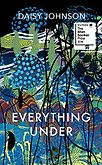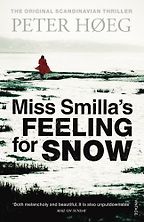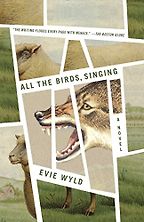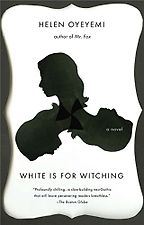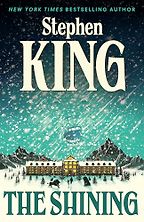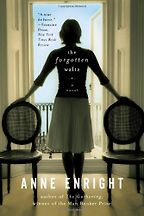Do you have any rituals, superstitions, or habits when it comes to writing?
I try not to let mysticism get in the way. It is best to think only: I must write. It is no good to think: I must write in this place or with this equipment or when it is this time of the day. Do not wait for the inspiration, chase the inspiration.
Having said that I find the early days or weeks of having a thought really important to the process. My first urge is always to write as soon as I have a thought but it is necessary to hold off, to wait and wait until the thought feels enormous and only then begin. Once writing starts I like to write fast, plough out the first draft with the thought always that most of it will end up in the bin. Later words and sentences will be precious, but these cannot be. I read everything I can find that is similar to the book in theme or style. I try to fill my head and keep it full with the book. I write on the laptop because it is fast but if I am out and about I write by hand. I write at my desk or in bed or at the pub. When I am finished a draft I put it away for as long as possible and then get it out again and start over.
What was the first piece of fiction you ever wrote?
My memory is too bad, and I was too young to remember the very first but I remember a novel (a very short novel) I once wrote which had a dragon in it. I wanted to write before I really knew what the word ‘fiction’ or ‘novel’ meant. I wrote some terrible poems and a few awful plays.
Do you think fiction offers something that nothing else can?
Good question. The obvious answers are, of course, escapism, the possibility of living in someone else’s head for a while. I also think that fiction allows us to say ‘what if’ in a way that not many other things can. It allows us to take ideas and break them apart and throw them back together in an entirely different way. It allows for an exploration of language and all it’s weirdness and impossibilities.
How long did it take you, from conception to the final touch, to produce the book for which you have been shortlisted?
Probably about four years although I was working on other things at the same time. It is a book whose ideas only really came together after a long gestation and while writing.
Do you share your work-in-progress with anyone?
I am incredibly lucky to have a few readers who read everything I write often at quite an early stage. They are all writers and extremely excellent editors. I think it is a mistake to complete a finished draft and only then show it to people. Life is too short to work on ideas that might not work and there are too many other ideas to work on.
“Life is too short to work on ideas that might not work”
The trick to finding a good reader is someone who likes your work but is mean enough to tell you the truth. I also have a good agent who is willing to read and discuss things with me when they are far from good.
Who do you write for?
At the beginning I wrote for myself. To be in a different place, to try out things, to enjoy the process. I think I wrote FEN, my first book which is a collection of short stories, for myself as an angry, anguished teenage girl. Now I write because I need to pay the rent and I need to buy food and that makes it different. I write for the perfect, imagined reader. They love the magical, darkness of nature and revel in weirdness.
Was there a particular aspect of the shortlisted work that you struggled with?
How long do you have? There are, of course, harder things to do but let’s not pretend that writing a novel is easy. They are so long! They are so tangled and massive! They are like octopus with twenty five arms and forty brains!
I began as a short story writer so the first thing I struggled with was holding something as long as a novel in my head for such a long time, keeping all the ideas in play, trying not to forget anything.
“I have deleted enough darlings for two more books.”
Everything Under is a fragmented novel with three different threads, and finding the exact right order for every part was also difficult. Trying to make myself feel I was reading the book for the first time when really it was the fiftieth and imagining when a reader would need to find out each piece of information. There were lots of days when my study floor was spread with the chapters and I would do nothing except move them from one place to the other.
What I really learnt with this book was how to delete my darlings. I have deleted enough darlings for two more books.
Did you surprise yourself—or did things take an unexpected turn—at any point in the process of writing the book?
There were wonderful moments in the writing which felt like surprises, as if it were the characters telling me things about themselves rather than me making writerly decisions. The protagonist is a lexicographer and this was one of those moments, it seemed to make such sense I couldn’t believe I hadn’t thought of it before. The more I wrote the book the more it dictated its own form. I’d wanted to write a straight forward, chronological narrative set in the city of Oxford. What has come out is a fragmented, discombobulating novel set primarily on a river in the middle of nowhere. At times I felt as if I was writing in my sleep, waiting up exhausted and reading over pages that seemed to have come together without my say so.
What was the first word or sentence you wrote for this book, and does it come first or appear elsewhere, if at all, in the finished work?
Nothing from the first draft appears in Everything Under. I would say, probably, nothing from the first three or four drafts appears. I remember the moment I wrote the first line of the finished book—‘The places we are born come back’—and feeling a sense of entirely giving in, of a sort of despair that if it didn’t work then it wouldn’t work at all. Somehow finding the first line seemed to draw the rest of the book into line behind it.
Please pick a line at random from page 99 of your book, in tribute to Ford Maddox Ford, and reproduce it for us here:
I have never read any Ford Maddox Ford but perhaps he would have liked ‘Again time passed without her noticing.’
Please tell us about the first book, Peter Hoeg’s Miss Smilla’s Feeling for Snow—what is it and why have you chosen it?
This is the first book I remember reading that felt like a punch, a shocked wonder. It’s a thriller set in Copenhagen in the winter about a small boy who dies and the woman who tries to find out how. For a while I reread this book every other year, gave it to everyone I know, carried it around with me for inspiration. It’s savage and freezing and intensely beautiful and strange. It taught me to love writing about strong women and extremes of nature.
Now tell us about your second pick, All The Birds Singing by Evie Wyld.
This is one of the books I had on my desk throughout writing Everything Under. It helped me a lot with structure—it’s a novel split into two threads—and it is also a really glorious read. It begins with a woman standing over a dead sheep and wondering what killed it. Evie Wyld writes about isolation and the terror of guilt like no one else.
Why did you pick your third choice, White is for Witching by Helen Oyeyemi?
Everything Oyeyemi writes is bursting with cleverness and creepiness and strangeness. White is for Witching is set in a big house on the white cliffs of Dover and is about the woman who the house loves a bit too much. It is one of the best reworkings of a haunted house I’ve ever read. My favourite writers to read while I’m writing are the ones who teach us that writing, really, can do anything. I needed this bravery while writing Everything Under, and White is for Witching gave it to me in spades.
Many readers will be familiar with your fourth book—The Shining by Stephen King. Tell us why it made your top five.
I’m a Halloween baby so being scared is in my blood, and Stephen King is the first person I ever read who really, really frightened me. The Shining is about a small family who go to stay in a hotel over the winter as caretakers. If you think you know the story because you’ve seen the film then you’d be wrong. This book is an absolute classic and a great way into the vast King oeuvre.
What about your final choice, Anne Enright’s The Forgotten Waltz?
I came late to Anne Enright and wish I’d found her earlier. Again the structure of The Forgotten Waltz really helped me in realising that Everything Under could be structured in whatever way it needed to be. It’s a book about an affair and the repercussions. A relatively simple story done to devastating effect.
This year marks the 50th anniversary of the Man Booker Prize. Which previous year’s winner (or indeed, shortlisted work) would you recommend and why?
The Bone People by Keri Hulme is a book I stole from my parent’s bookcase when I was a teenager and devoured. It is not an easy read. It challenges both thematically and structurally, it’s a dark read about abuse and loneliness, tangled up with Maori myth.
What have you read lately, either for the first time or in re-visiting, that has gripped you and why?
The best things I have read this month are The Silence of the Girls by Pat Barker and Ghost Wall by Sarah Moss. The Silence of the Girls is a retelling of the Iliad and is entirely devastating. In a different way, in fact, so is Ghost Wall which is a beautifully thin novel about abuse and Brexit.
Get the weekly Five Books newsletter
What books are on your bedside table at the moment? (Or, in spite of best intentions, not necessarily the same thing: what will you read next?)
I’m currently working my way through the rest of the Booker shortlist which is a joyous experience. On my bedside table are the two books I haven’t read yet, The Milkman by Anna Burns and The Overstory by Richard Powers. I’m also reading contemporary horror novels for my most recent project, in the pile are Frankenstein in Baghdad by Ahmed Saadawi and The Upstairs Room by Kate Murray-Browne. I’m also reading—and as I do rereading—Fiona Benson’s new poetry collection which is astounding.
Five Books aims to keep its book recommendations and interviews up to date. If you are the interviewee and would like to update your choice of books (or even just what you say about them) please email us at [email protected]
Five Books interviews are expensive to produce. If you've enjoyed this interview, please support us by donating a small amount.

